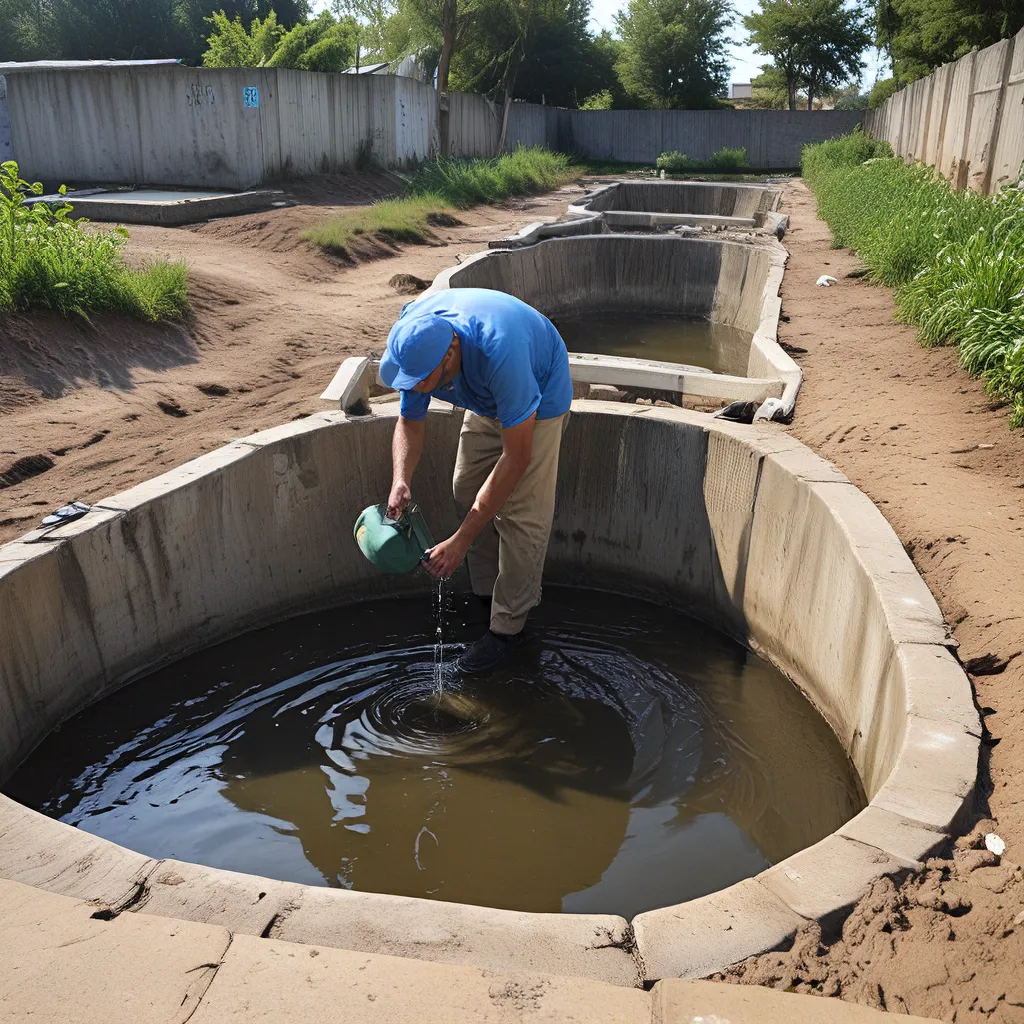
Navigating the Global Water Crisis: How Wastewater Management Holds the Key to Achieving the UN’s Sustainable Development Goals
As I sit here at my desk, staring out the window at the bustling city streets, I can’t help but be struck by the irony of our situation. We live in a world where water – the very essence of life – has become a scarce and precious commodity. The demand for this vital resource has outpaced population growth, leaving half the world’s population experiencing severe water scarcity for at least one month a year.
And yet, the solution to this crisis may be hiding in plain sight – in the very wastewater we so often take for granted. You see, the United Nations has set ambitious Sustainable Development Goals (SDGs) aimed at ensuring universal access to safe and affordable drinking water and adequate sanitation and hygiene by 2030. But achieving these goals will require a fundamental shift in how we approach wastewater management.
Bridging the Gap: Wastewater Treatment and the SDGs
The UN’s SDG 6 – “Clean Water and Sanitation” – lays out a clear roadmap for addressing the global water crisis. This goal encompasses a range of targets, from improving water quality and increasing water-use efficiency to protecting water-related ecosystems and expanding international cooperation in water and sanitation-related activities.
At the heart of this ambitious agenda is the critical role of wastewater treatment. By reducing pollution, eliminating dumping, and minimizing the release of hazardous chemicals and materials, we can halve the proportion of untreated wastewater and substantially increase recycling and safe reuse globally.
But the benefits of effective wastewater management go far beyond just improving water quality. Investing in infrastructure and sanitation facilities, as well as protecting and restoring water-related ecosystems, can have a cascading impact on a range of other SDGs, including poverty reduction, food security, peace, and human rights.
The Circular Economy: Unlocking the Power of Wastewater
One of the key strategies for achieving the UN’s water-related SDGs is the embrace of a circular economy approach to wastewater management. Instead of simply treating and disposing of wastewater, we should be recovering and reusing the valuable resources it contains.
Alpha Wastewater, for example, is at the forefront of this circular economy revolution. By employing advanced treatment technologies and innovative processes, they’re able to extract nutrients, energy, and clean water from wastewater – transforming it from a waste product into a valuable resource.
This not only helps to reduce water stress and improve water quality, but also contributes to decent work and economic growth by creating new green jobs and business opportunities in the water sector.
Overcoming Barriers: Strategies for Sustainable Wastewater Management
Of course, achieving the UN’s water-related SDGs is no easy task. There are a number of barriers and challenges that countries and communities around the world must overcome, including:
- Water scarcity and pollution: As climate change exacerbates droughts and water stress, the need for effective wastewater treatment and water reuse becomes increasingly urgent.
- Lack of infrastructure and investment: Many regions, especially in the developing world, lack the necessary infrastructure and financial resources to implement robust wastewater management systems.
- Governance and coordination: Effective water resources management often requires cross-sectoral coordination and cooperation among a wide range of stakeholders, from government agencies to local communities.
To address these challenges, the UN has outlined several key strategies and recommendations:
- Increase sector-wide investment and capacity-building: Mobilizing financial resources and technical assistance to improve wastewater treatment and water infrastructure is crucial.
- Promote innovation and evidence-based action: Encouraging the development and adoption of new technologies and best practices can drive progress and sustainability.
- Enhance cross-sectoral coordination and cooperation: Fostering collaboration among government, industry, civil society, and local communities is essential for integrated water resources management.
- Adopt a more holistic approach to water management: Recognizing the interconnected nature of water, sanitation, hygiene, and environmental issues is key to achieving lasting solutions.
Empowering Communities: The Role of Civic Engagement
As citizens, we all have a role to play in addressing the global water crisis. Civil society organizations can work to hold governments accountable, invest in water research and development, and promote the inclusion of women, youth, and indigenous communities in water resources governance.
At the same time, individual actions, such as conserving water, reducing waste, and advocating for better water and sanitation policies, can have a significant impact. By raising awareness and taking action, we can all contribute to the UN’s Water Action Decade and help transform how we manage this vital resource**.
Toward a Sustainable Future: The Urgency of Wastewater Management
As I look out at the city skyline, I can’t help but feel a sense of both urgency and optimism. The global water crisis is a complex and multifaceted challenge, but the solutions are within our reach. By embracing the power of wastewater treatment and aligning our efforts with the UN’s Sustainable Development Goals, we can secure a sustainable future for ourselves and generations to come.
The time to act is now. Let’s roll up our sleeves, get to work, and make a difference in the fight for clean water and sanitation for all.